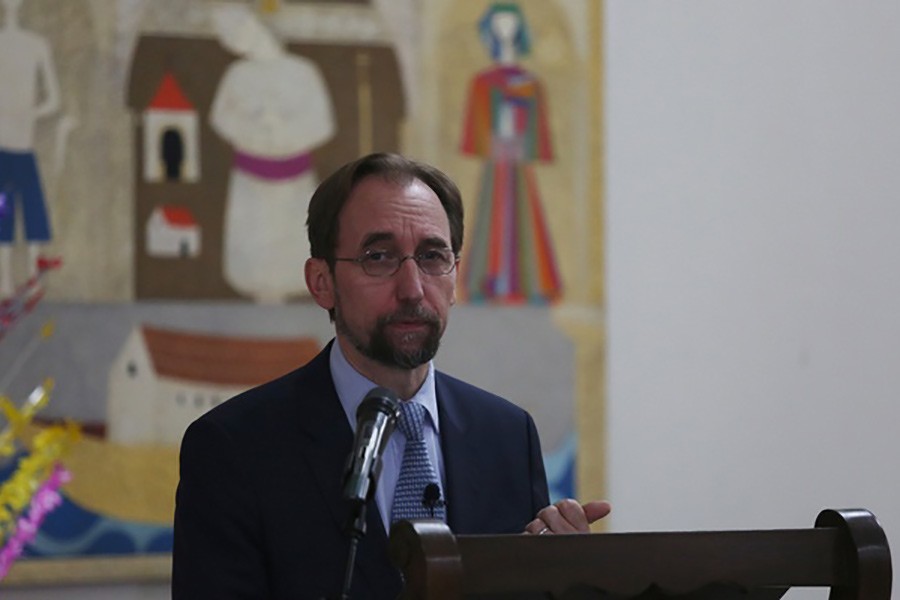Rohingya people are still fleeing violence in Rakhine state of Myanmar despite an agreement between Bangladesh to send them home.
United Nations’ top human rights official, Zeid Ra‘ad al-Hussein, made remarks at a special session of the UN Human Rights Council in Geneva called by Bangladesh.
The UN High Commissioner for Human Rights also said on Tuesday that none of the 626,000 Rohingya, who have fled violence since August, should be repatriated to Myanmar without ensuring strong monitoring on the ground.
Zeid Ra‘ad al-Hussein described concordant reports of acts of appalling barbarity committed against the Rohingya.
These include deliberately burning people to death inside their homes, murders of children and adults; indiscriminate shooting of fleeing civilians; widespread rapes of women and girls, and the burning and destruction of houses, schools, markets and mosques.
“Can anyone - can anyone - rule out that elements of genocide may be present?” he told the 47-member state forum.
The official also urged the Council to recommend that the UN General Assembly establish a new mechanism “to assist individual criminal investigations of those responsible”.
Prosecutions for the violence and rapes against Rohingya by security forces or by civilians “appear extremely rare”, Zeid said.
Marzuki Darusman, head of an independent international fact-finding mission on Myanmar, said by video from Malaysia: “We will go where the evidence leads us...Our focus is on facts and circumstances of allegations in Myanmar as a whole since 2011.”
Myanmar has not granted the investigators access to Rakhine, the northern state from which the Rohingya have fled, he said. “We maintain hope that it will be granted early in 2018.”
Pramila Patten, special representative of the Secretary-General on Sexual Violence in Conflict, who interviewed survivors in Bangladesh in November, said: “I heard the most heart-breaking and horrific accounts of sexual atrocities reportedly committed in cold blood out of a lethal hatred of these people solely on the basis of their ethnicity and religion”.
Crimes included “rape, gang rape by multiple soldiers, forced public nudity and humiliation, and sexual slavery in military captivity”, Patten said.
Myanmar denies committing atrocities against the Rohingya. Its envoy Htin, referring to the accounts, said: “People will say what they wanted to believe and sometimes they will say what they were told to say.”
According to Reuters, Myanmar’s ambassador Htin Lynn said that his government was working with Bangladesh to ensure returns of the displaced in about two months and “there will be no camps”.
The United Nations defines genocide as acts intended to destroy a national, ethnic, racial or religious group in whole or in part. A UN convention requires all countries to act to halt genocide and to punish those responsible.


